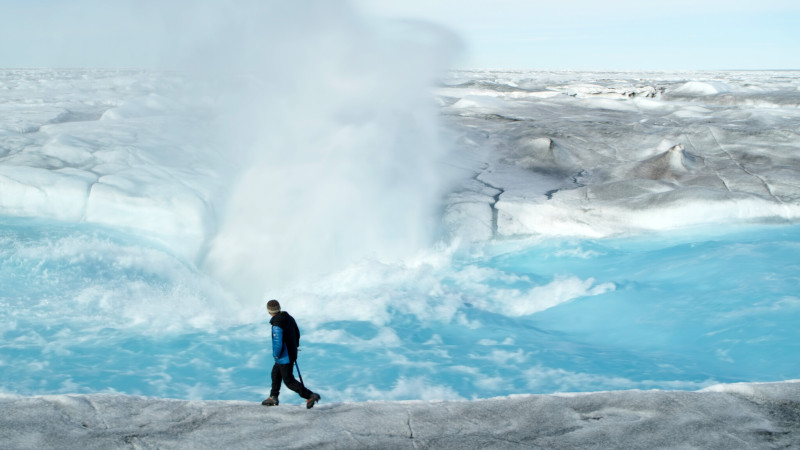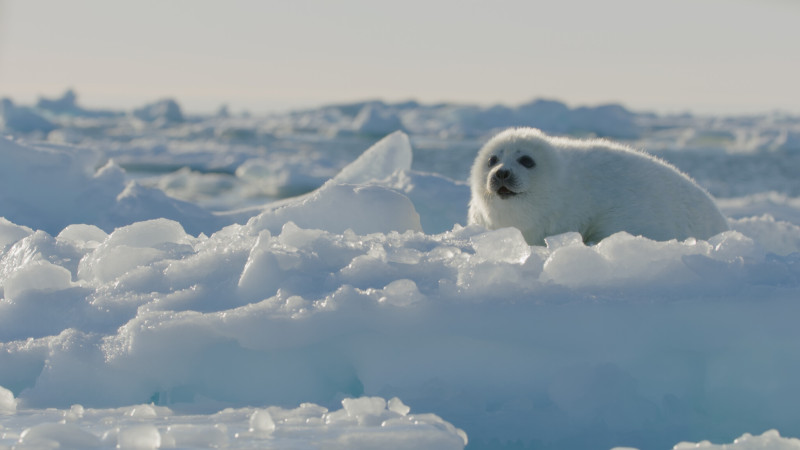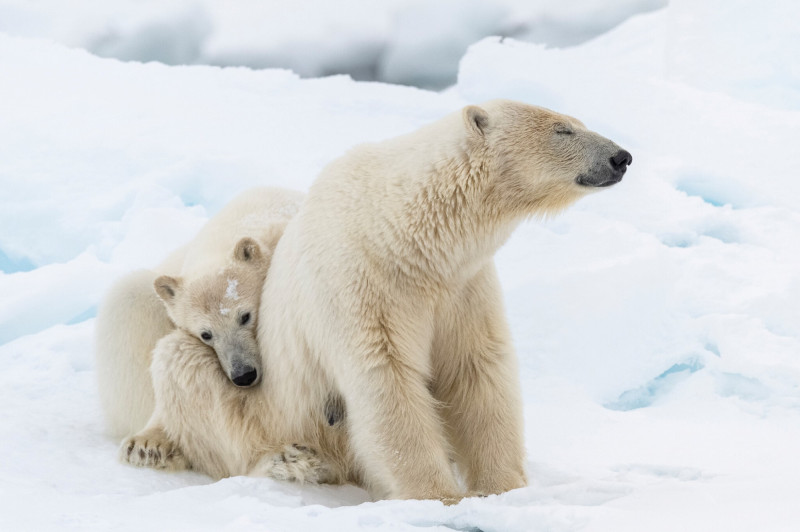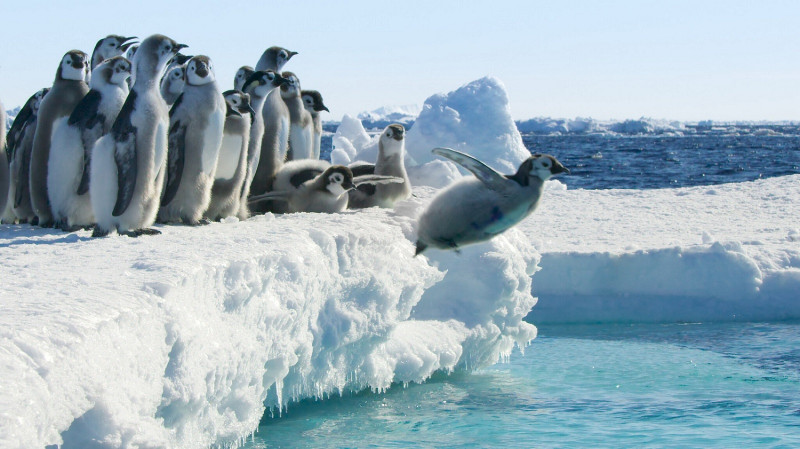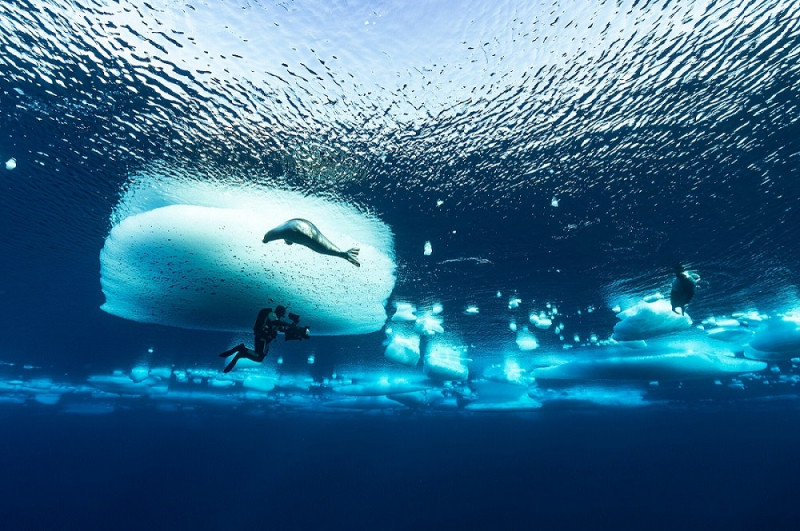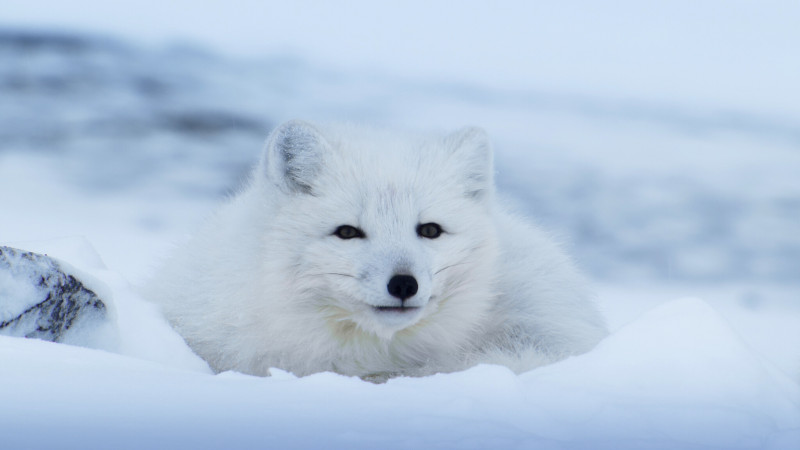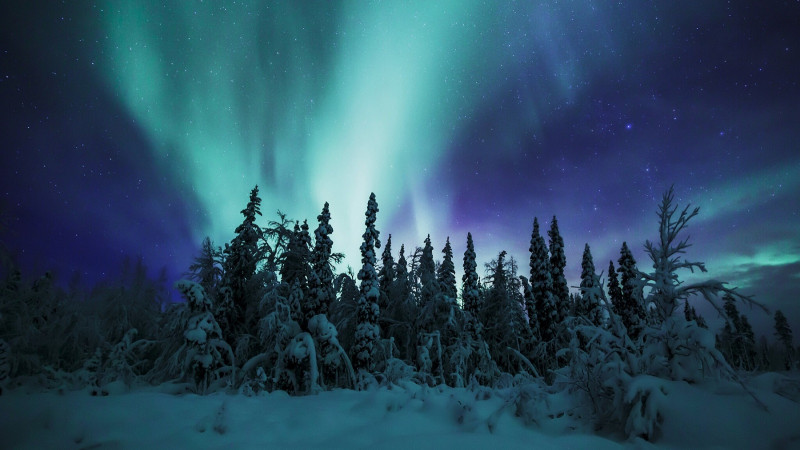Premiere, on Monday, September 11 at 11:00 p.m., on SKAI
After the amazing Frozen Planet – in which the SKAI was co-produced and broadcast in 2013-, the BBC returns with the new cycle of the award-winning documentary series. The Frozen Planet II comes to the screen of SKAI, in First TV Broadcast and for 6 episodesviewers will have the opportunity to “live the wonder” of our planet’s frozen kingdoms as they stand on the brink of a major change.
The Frozen Planet gave BBC viewers an unprecedented insight into life at the Poles. Years later, Frozen Planet II – narrated by Sir David Attenborough – returns to the Arctic and Antarctic to observe the amazing species that thrive there. Going further than the first cycle of the series, the new episodes follow the wildlife in the coldest regions of the world: the high mountains, frozen deserts, snowy forests and frozen oceans. Places so demanding to survive that only a heroic group of animals can live here. Polar bears, penguins, snow monkeys, Siberian tigers: each species must overcome special challenges to survive in this extreme environment
The Frozen Planet II produced by the world-renowned BBC Studios Natural History Unit, co-produced by BBC America, Open University, Migu Video, ZDF and France Televisions. The series involved more than 2,000 days of field shooting over three years, in 18 different countries, on all continents, in Antarctica and in space. Using state-of-the-art cameras, the series is shot in ultra-high definition, offering viewers stunning images. Camila Cabello and Oscar-winning composer Hans Zimmer teamed up to record the song featured in the series titled “Take me back Home.”
What we will see in detail:
Monday 11 September at 23.00
Episode 1 – Frozen Worlds
The first episode of the series takes us to the coldest corners of the planet to explain why the temperature is so low and how the animals that live there manage to survive. In Antarctica we will meet Emperor Penguins and intelligent killer whales, while in the steppes of Mongolia we will meet the loneliest mountain wildcat. Even further north of the steppe, in the largest forest on earth, we will meet the giant Siberian Tiger. The journey will end in the extreme North of the Arctic, home to polar bears and the most unusual seals on the planet.
Tuesday 12 September at 23.00
Episode 2 – Frozen Oceans
The journey continues at sea, to meet the animals that survive above and below the ice of the Arctic Ocean. Here, in the depths of winter, polar bears have plenty of food and can spend their time playing. Spring has its own challenges as the ice begins to melt, while summer brings with it a host of visitors who come from the depths of the ocean to feed and breed.
Wednesday 13 September at 23.00
Episode 3 – Frozen Peaks
In this episode, we travel to the highest peaks on the planet. Each of these frozen ‘islands in the sky’ is home to a distinct ecosystem with its own rules of survival. Thanks to the BBC’s special cameras we will literally “dive” into an avalanche. In Japan, we’ll see macaques that manage to literally live in the snow, and in New Zealand we’ll meet a clever parrot that uses the dangers of the mountains to its advantage.
Thursday, September 14 at 23.00
Episode 4 – Frozen South
We travel to the most inhospitable environment on the planet, Antarctica: an entire continent covered in ice and snow. Here, most animals spend their entire lives on the coast. In some cases they manage to create huge populations, such as the King Penguins of South Georgia Island. In others, as in the case of the albatross, loneliness and the lack of female birds leads to the creation of pairs consisting only of male members. As we move inland, the landscape looks more and more desolate. Beneath the surface of the ice, however, lies a whole hidden world of mountain ranges, volcanoes, deserts, and even underground freshwater lakes. The surprises of Antarctica never end.
Friday 15 September at 23.00
Episode 5 – Frozen Lands
We return to the North to tour the largest terrestrial habitat on earth, the taiga and tundra. Here the rules of survival are written by the changing of the seasons. The winter is so severe that the wolves are forced to form super packs of 25 members in order to cope with the only prey available this season: the huge bison. As spring transforms the landscape, the baby turtles who have been waiting for months for the temperature to rise wake up from their hibernation and “come back” to life. Summer, again, makes the effects of climate change apparent, as areas that have always been covered in ice now “thaw” for the first time.
Saturday 16 September at 23.00
Episode 6 – Our Frozen Planet
It is obvious that the “frozen kingdoms” of the planet today are changing at a faster pace than ever before. In the final episode of the series, we’ll meet the people who have dedicated their lives to studying these changes and their effects. Through their own perspective, we will understand how these changes profoundly affect not only the people and animals living in the specific areas, but also life on our entire planet.
FROZEN PLANET II
A fascinating documentary series
in First Television Broadcasting, on SKAI
Monday 11 to Saturday 16 September at 23.00
Source :Skai
I am Frederick Tuttle, who works in 247 News Agency as an author and mostly cover entertainment news. I have worked in this industry for 10 years and have gained a lot of experience. I am a very hard worker and always strive to get the best out of my work. I am also very passionate about my work and always try to keep up with the latest news and trends.


